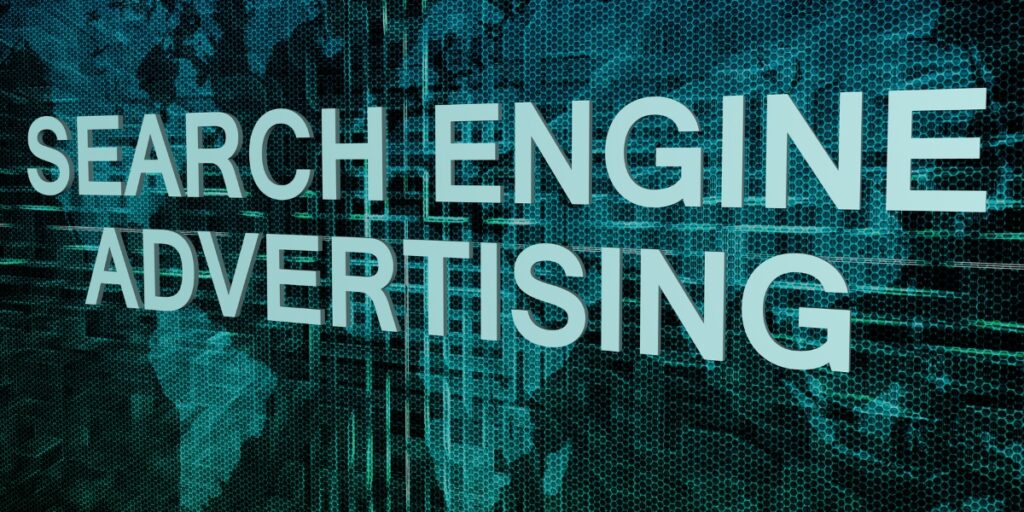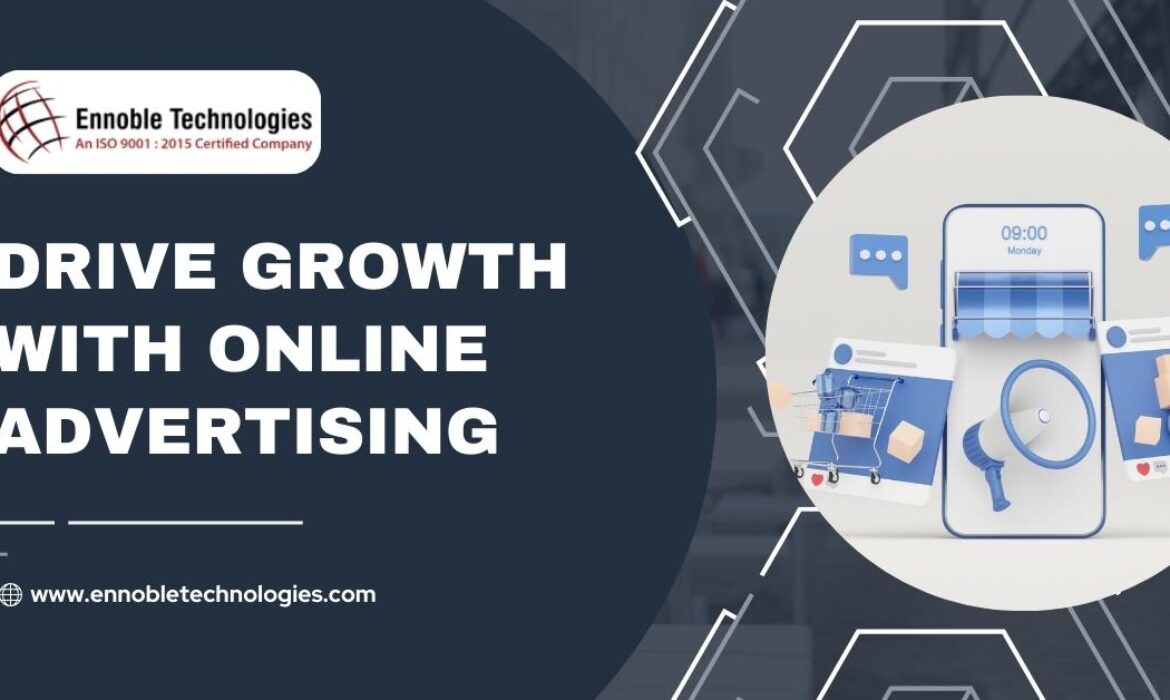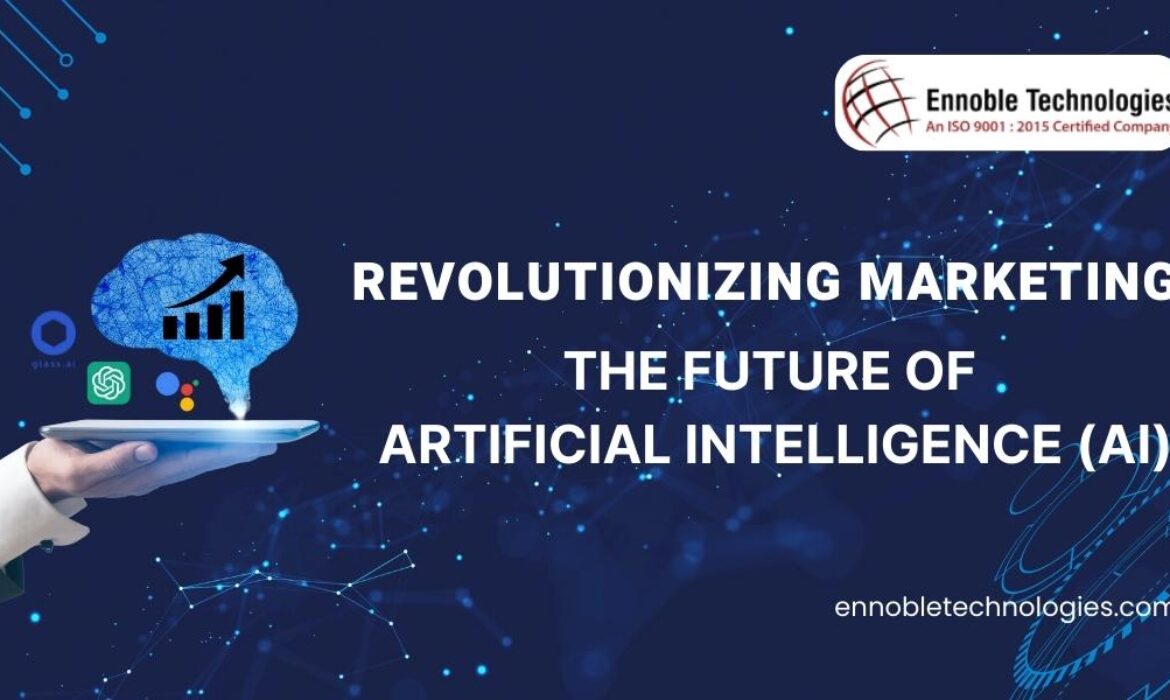Drive Growth E-commerce with Online Advertising: A Comprehensive Guide
Introduction
In today’s digital age, the world of e-commerce offers immense potential for businesses to expand their reach and boost revenue. One of the most powerful tools at your disposal is online advertising. By strategically leveraging online advertising, you can drive growth in your e-commerce venture like never before. This comprehensive guide will walk you through the ins and outs of utilizing online advertising to supercharge your e-commerce growth.
Drive Growth E-commerce with Online Advertising

Online advertising has transformed the way businesses connect with their target audiences. It allows you to reach potential customers across various online platforms, creating brand awareness, driving traffic, and ultimately boosting sales. By aligning your advertising efforts with your business goals, you can achieve remarkable results.
The Power of Online Advertising in E-commerce

In a highly competitive e-commerce landscape, online advertising offers a competitive edge. It enables you to tap into the vast online user base and showcase your products or services to the right people at the right time. This targeted approach significantly increases your chances of conversion and growth. We delve into the myriad ways you can leverage online advertising to drive e-commerce growth.
1. Understanding Target Demographics
To create a successful online advertising campaign, we first need to have a deep understanding of our target demographics. Recognizing their preferences, buying habits, and online behaviors provides invaluable insights. Armed with this information, we can tailor our advertisements to resonate more deeply, increasing the likelihood of conversion.
2. Embracing Multiple Advertising Platforms
While many e-commerce businesses might be tempted to stick with tried and true platforms like Google AdWords, we advise diversifying advertising efforts. Platforms like Facebook, Instagram, Pinterest, and even TikTok offer unique opportunities to reach different segments of your target audience. By embracing multiple platforms, we can cast a wider net and pull in a more varied customer base.
3. Prioritizing Mobile-First Advertising
With a significant chunk of online shopping happening on mobile devices, we must prioritize mobile-first advertising strategies. This involves optimizing ads for mobile screens, ensuring speedy page load times, and simplifying the checkout process for mobile users.
4. Leveraging Retargeting Strategies
Ever wondered why a product you viewed on a website seems to follow you around on other platforms? That’s retargeting in action. By using retargeting strategies, we can remind potential customers of products they’ve shown interest in, nudging them closer to a purchase.
5. Utilizing Video Content
Video content is not just for entertainment. We’ve seen a marked increase in conversion rates for e-commerce businesses that employ video ads. Demonstrating product use, showing it in action, or illustrating its benefits through video can be much more effective than static images.
6. Integrating Seamless Checkout Processes
Once a potential customer clicks on our ad, half the battle is won. But to convert this interest into a sale, we need to ensure that our checkout processes are as seamless as possible. Streamlined, easy-to-navigate, and secure checkouts boost consumer confidence and increase conversion rates.
7. Analyzing and Adapting
The digital landscape is always changing. What works today might not necessarily work tomorrow. As such, we need to be in a constant state of analysis and adaptation. By monitoring our online advertising campaigns closely, we can quickly pivot and adjust our strategies based on real-time data.
8. Creating Value Propositions
While it might be tempting to rely solely on discounts or sales to drive traffic, we believe in the power of value propositions. Offering unique selling points, exclusive content, or value-added services can make our e-commerce platform stand out in a sea of competitors.
9. Ensuring Transparency and Authenticity
In an age where consumers are more discerning than ever, transparency and authenticity go a long way. By being open about our business practices, showcasing real reviews, and interacting genuinely with customers, we can build trust. And trust, in the realm of e-commerce, translates to loyalty and repeat business.
Types of Online Advertising for E-commerce

1. Search Engine Advertising: Utilize platforms like Google Ads to display your products or services prominently when users search for relevant keywords. This ensures your offerings are visible to potential customers actively looking for what you offer.
2. Social Media Advertising: Leverage the massive user bases of platforms like Facebook, Instagram, and Twitter to showcase your products through engaging visual content. Precise audience targeting options allow you to reach users based on demographics, interests, and behaviors.
3. Display Advertising: Display ads on websites and apps that your target audience frequents. These ads come in various formats, from banners to videos, grabbing users’ attention and directing them to your e-commerce site.
4. Influencer Collaborations: Partner with influencers in your industry to promote your products. Their authentic endorsements can build trust among their followers and drive traffic to your ecommerce store.
Crafting Compelling Ad Campaigns
Creating effective online ad campaigns requires a blend of creativity, strategy, and data analysis.
Utilizing LSI Keywords for Ad Copy
Incorporate Latent Semantic Indexing (LSI) keywords into your ad copy. LSI keywords are contextually related terms that enhance your ad’s relevance, making it more likely to appear in relevant searches.
Engaging Visuals and Copywriting
Captivating visuals paired with persuasive copy can make your ads stand out. Highlight the unique value propositions of your products, addressing pain points and offering solutions.
A/B Testing for Optimization
Regularly conduct A/B tests on different ad elements such as headlines, images, and calls-to-action. This data-driven approach helps you identify the most effective components and refine your campaigns for better results.
Enhancing User Experience on Your E-commerce Site
A successful ad campaign is only part of the equation. Ensuring a seamless user experience on your e-commerce website is crucial for converting ad clicks into sales.
Mobile-Friendly Design
Optimize your website for mobile devices to accommodate the growing number of mobile users. A responsive design ensures a smooth experience regardless of the device used.
Clear Navigation and Product Information
Simplify site navigation and provide comprehensive product information. Users should easily find what they’re looking for and make informed purchase decisions.
Leveraging Data Analytics for Continuous Improvement
Data-driven decision-making is key to refining your online advertising strategies and achieving sustained growth.
Monitoring Key Metrics
Regularly monitor metrics such as click-through rates, conversion rates, and return on ad spend. These insights help you identify which campaigns are performing well and where adjustments are needed.
Retargeting and Remarketing
Implement retargeting campaigns to re-engage users who visited your site but didn’t complete a purchase. Remarketing ads can remind them of their interest and nudge them towards conversion.
Scaling Successful Campaigns
Identify campaigns that consistently deliver positive results and consider scaling them. Increasing your investment in high-performing campaigns can lead to exponential growth.
FAQs about Driving E-commerce Growth through Online Advertising

Q: How quickly can I expect to see results from my online advertising efforts?
A: Results can vary depending on factors like your industry, budget, and campaign strategy. However, with effective targeting and optimization, you can start seeing noticeable improvements within a few weeks.
Q: What’s the ideal budget for an e-commerce online advertising campaign?
A: There’s no one-size-fits-all answer. Your budget should align with your goals and the competitiveness of your industry. Start with a manageable budget and increase it as you see positive returns.
Q: How can I ensure my ads resonate with my target audience?
A: Conduct thorough audience research to understand their preferences, pain points, and behaviors. Craft ad content that speaks directly to their needs and aspirations.
Q: Are there any pitfalls to avoid in e-commerce online advertising?
A: Avoid overselling and using misleading clickbait. Transparency and authenticity build trust with your audience and lead to sustainable growth.
Q: Can I handle online advertising on my own, or should I hire a professional?
A: While managing your own campaigns is possible, enlisting the help of professionals can save you time and potentially yield better results. Their expertise can help you navigate the intricacies of online advertising.
Q: What’s the role of storytelling in online advertising for e-commerce?
A: Storytelling humanizes your brand and creates an emotional connection with your audience. Sharing stories about your products, brand journey, or satisfied customers can set you apart from competitors.
Conclusion
Online advertising has become a cornerstone of e-commerce growth. By understanding the various strategies, optimizing your campaigns, and delivering exceptional user experiences, you can harness its power to drive remarkable growth in your e-commerce venture. Stay adaptive, keep learning, and watch your business flourish in the digital landscape.
Also Read: Prevent E-commerce Fraud with Our Tips: A Comprehensive Guide – Ennoble Technologies
Revolutionizing Marketing: The Future of Artificial Intelligence (AI)
With the rise of digital marketing, businesses are always on the lookout for a competitive edge. In recent years, Artificial Intelligence (AI) has emerged as a game-changing technology that is revolutionizing the world of marketing. AI can analyze customer data in real-time and provide insights into consumer behavior, preferences, and patterns. It can even assist in the creation and optimization of personalized marketing campaigns.
As AI continues to evolve and advance, it is predicted to become an integral part of the marketing landscape. Marketing professionals who embrace this technology early on will have a significant advantage over their competitors. In this blog, we will explore the future of AI in marketing and its potential impact on the industry.
Understanding Artificial Intelligence (AI)

Artificial Intelligence (AI) is a term used to describe the ability of machines or algorithms to carry out tasks that typically require human intelligence. This involves the ability to learn, reason, and solve problems. AI systems use a variety of techniques including machine learning, deep learning, and natural language processing to understand and interpret data.
At its core, AI relies on vast amounts of data to generate insights and make predictions. This data can come from a variety of sources such as customer interactions, social media activity, website traffic, and more. AI systems then use this data to learn and improve over time, becoming more accurate and effective at predicting customer behavior and preferences.
One of the most significant advantages of AI is its ability to process and analyze vast amounts of data in real-time. This means that businesses can use AI to create personalized marketing campaigns that are tailored to individual customers, providing a more engaging and personalized experience. Additionally, AI can help marketers to identify new opportunities and target new audiences, enabling them to stay ahead of the competition.
As AI continues to evolve and become more sophisticated, we can expect to see even more exciting applications in marketing. For example, AI could be used to create chatbots that can provide instant customer support, or to identify potential new markets for businesses to explore. Ultimately, the future of AI in marketing looks bright, and businesses that embrace this technology will be well-positioned to thrive in the years ahead.
The union of Artificial Intelligence and Marketing

The integration of Artificial Intelligence (AI) and marketing is no longer a distant future, but a reality that is already transforming the industry. The union of AI and marketing promises to revolutionize the way businesses communicate with their customers and improve the overall customer experience. Here are some of the ways in which AI is changing the face of marketing:
- Predictive Analytics – AI systems enable businesses to analyze large amounts of data about customer behavior and preferences, allowing them to predict future trends and identify potential new markets. This information can then be used to tailor marketing campaigns that are highly relevant to individual customers.
- Personalization – AI allows marketers to create more personalized experiences for customers by analyzing data about their browsing and purchasing behavior. This data can be used to create tailored content and messaging that speaks directly to the individual customer.
- Chatbots – AI-powered chatbots can provide instant customer support, answering questions and providing solutions to common problems around the clock. This not only improves the customer experience but also frees up resources that can be used elsewhere in the business.
- Content Creation – AI algorithms can be used to create highly engaging content, from blog articles to social media posts. This allows businesses to produce a large volume of quality content efficiently and cost-effectively
- Marketing Automation – AI-powered marketing automation tools can streamline many marketing processes, improving efficiency, and reducing costs. For example, AI can be used to automate email campaigns, social media posts, and even advertising campaigns.
As AI technology continues to evolve, we can expect to see even more exciting applications in marketing. Ultimately, the union of AI and marketing promises to create a more personalized and seamless customer experience that will benefit both businesses and their customers. Businesses that invest in AI-powered marketing tools will be well-positioned to stay ahead of the competition and thrive in the years ahead.
Benefits of using Artificial Intelligence in marketing

Artificial Intelligence (AI) is revolutionizing marketing and opening doors to new opportunities. Here are four benefits of using AI in marketing:
- Increased Efficiency – AI-powered marketing tools can automate repetitive tasks, freeing up time for marketers to focus on creativity and strategy. This can lead to increased efficiency, improved productivity, and cost savings.
- Data-Driven Decision Making – AI can analyze customer data to provide valuable insights into behaviors, preferences, and trends. This information can inform marketing strategies and campaigns, leading to more targeted and effective communication.
- Improved Customer Experience – By utilizing AI-powered chatbots and personalization, businesses can provide a more seamless and personalized customer experience. This can lead to increased customer satisfaction, loyalty, and retention.
- Competitive Advantage – Businesses that embrace AI in marketing will have a competitive advantage over those that do not. By staying ahead of the curve and utilizing the latest technology, businesses can stand out in a crowded market and attract more customers.
Overall, AI has the potential to revolutionize marketing and provide businesses with a valuable edge. As the technology continues to evolve, we can expect to see even more exciting applications in the marketing realm. By utilizing AI-powered tools and strategies, businesses can stay relevant and competitive in the years ahead.
Current use cases for AI in marketing

AI is being used in a variety of ways within the marketing sector, with innovative companies exploring the technology to gain a competitive edge. Here are five examples of current use cases for AI in marketing:
- Personalized Marketing – AI allows businesses to tailor their marketing efforts to individual customers. By analyzing customer data, marketers can create personalized promotions and product recommendations, leading to higher engagement and conversion rates.
- Predictive Analytics – AI can forecast future trends by analyzing past data. By understanding customer behavior patterns, marketers can predict which products and promotions will be successful and plan accordingly.
- Chatbots – AI-powered chatbots offer a 24/7 customer service experience. They can quickly and efficiently answer customer inquiries, qualify leads and even provide personalized product recommendations.
- Content Creation – AI can assist in content creation by generating headlines, captions, and even articles. This can increase productivity and streamline the content creation process.
- Programmatic Advertising – AI-powered programmatic advertising can automatically adjust campaigns based on performance, ensuring ads are shown to the right people at the right time on the most effective channels.
These use cases are just a few examples of how AI is revolutionizing marketing. As technology continues to evolve, we can expect to see even more innovative applications of AI in the marketing industry. Embracing AI can help businesses gain a competitive advantage and improve their marketing strategies in the years ahead.
The future of AI in marketing

The rapid growth of artificial intelligence (AI) technology is transforming the marketing industry. AI has the potential to revolutionize marketing by providing innovative solutions to businesses for better engagement with their customers. Here are six predictions for the future of AI in marketing:
- Even More Personalization – With the increasing amount of data available, AI will enhance personalization to the level where ads and product recommendations will be tailored specifically to each individual customer.
- AI-powered Virtual Assistants – AI-powered virtual assistants can help companies with customer service by providing immediate solutions to customer issues, as well as assistance in purchasing decisions.
- Voice Search Optimization – AI-driven voice search is the future of search. With voice search optimization, brands can develop voice-activated content, which will help them reach their customers in new ways.
- Image Recognition for Advertising – AI-powered image recognition technology will help businesses automatically categorize images based on products, locations, and patterns. This will also enable them to display targeted ads to customers.
- Better Data Analysis – AI can analyze vast amounts of data much more efficiently than humans. In the future, AI will be more successful in finding meaningful and impactful correlations and trends.
- Increased Automation – AI-driven automation will help businesses automate many time-consuming marketing tasks such as social media posting, email marketing, and lead scoring. This will allow marketers to focus on other significant tasks, including customer engagement.
As AI technology continues to evolve, businesses can expect to see significant advancements in marketing techniques and strategies. With its powerful analytical abilities, AI has the potential to transform the way marketing campaigns are planned and executed in the future.
Potential implications and ethical considerations

As with any emerging technology, artificial intelligence (AI) in marketing comes with potential implications and ethical considerations. Here are seven implications and considerations to be aware of:
- Bias – AI algorithms can perpetuate bias based on data used to train them. Marketers need to ensure any data they use is not biased or incomplete, and ensure AI is programmed with ethical guidelines.
- Privacy – As AI collects more data, potential privacy concerns continue to arise. Marketers must be transparent about data collection practices and ensure consumers can opt-out.
- Job Loss – Automation with AI could lead to job loss. Organizations must consider the impact on their staff and collaborate with them to find new roles.
- Data Security – As organizations collect more data, they must ensure they are secure from cyber-attacks. Hackers could use the data to create fake personas and purchase goods and services on behalf of unsuspecting people.
- Accountability – As AI takes over decision-making processes, accountability needs to be defined. Who will take responsibility for decisions made by AI algorithms?
- Over-reliance – AI in marketing could lead to over-reliance on algorithms and automation. Marketers still need to think critically and creatively to create effective campaigns.
- Customer Trust – As AI technology becomes more integrated into the marketing industry, organizations must gain customer trust by being transparent about their data practices and by being mindful of privacy concerns.
As AI continues to change the face of marketing, organizations must be aware of the potential implications and ethical considerations to ensure they make the most of this powerful technology while also remaining responsible and ethical.
Conclusion
In conclusion, the future of artificial intelligence in marketing is promising. As AI technology continues to revolutionize the industry, marketing professionals must be aware of the numerous implications and ethical considerations that come with it. Ensuring that AI is unbiased, privacy is protected, job loss is minimized, data security is maintained, accountability is defined, critical thinking is still present, customer trust is gained, and ethics are maintained is imperative. By doing so, companies can take advantage of the power of AI while ensuring that they remain responsible and ethical in their marketing practices. As the world becomes increasingly digitized, AI is sure to play an even more significant role in the way marketing is conducted. By embracing this powerful tool while remaining mindful of ethical considerations, organizations have the potential to dominate the marketing landscape far into the future.
Stay tuned to our space for more interesting topics of discussion.
Also Read: Mobile Friendliness – Your Key to Connecting with Users on the Go | Ennoble Technologies





